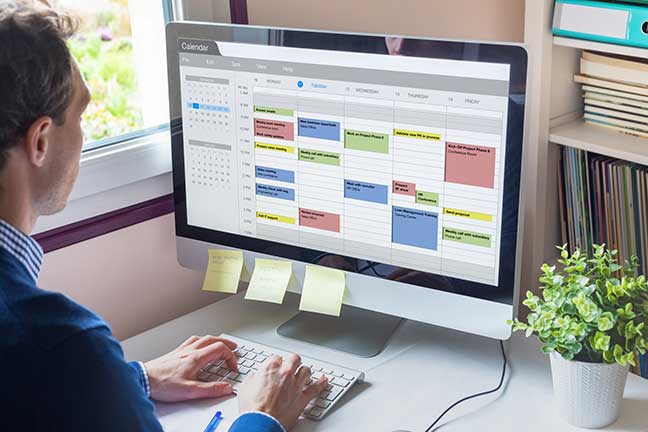Working two jobs can be rewarding but tiring. Balancing multiple jobs takes planning and self-care to avoid burnout. This guide covers key strategies to successfully coordinate two jobs. Read on to learn how to balance your schedule, set boundaries, and optimize your health and productivity while juggling more than one job.
What Should You Consider When Choosing a Second Job?
If taking on a second job, choose one that complements your primary job and lifestyle. Consider how it fits with your skills, interests, location, and need for flexibility.
Look for transferable skills from your current role that could earn extra money elsewhere. For example, teachers can tutor, designers can freelance. This builds on existing abilities so you can maximize earnings.
Be mindful of any non-compete clauses or conflicts of interest with your primary employer. Some companies prohibit working for competitors. Ensure your second job aligns with contractual obligations.
Ideally, pick part time jobs for something enjoyable that provides personal fulfillment, not just money. This intrinsic motivation will help on tiring days. Locally based side jobs also minimize commuting time and costs.

How Do You Coordinate the Two Job Schedules?
Smoothly balancing two work schedules takes planning. Invest in a full day planner to map out days and prevent scheduling conflicts or confusion.
Note each job’s hours and key tasks. Schedule in commuting time and breaks. Mark the week ahead for any regular meetings or deadlines. Having everything visualized lets you identify and address problems early.
Communicate clearly with both employers about your availability. Request schedule changes well in advance when needed for appointments or other commitments. Don’t overpromise your time.
Build in personal time for errands, meals, exercise, family fun, and most importantly, enough sleep. Don’t become all work and no play. Maintaining work-life balance is crucial when you’re full-time job is pulling double duty.
What Are Some Tips for Staying Organized Across Jobs?
Organization and separation of your two jobs reduce errors and stress. Here are some tips:
- Make a detailed daily to-do list for each job to keep tasks from blending together.
- Set reminders on your planner for all major deadlines, meetings, and appointments.
- Check off tasks as you complete them for a sense of accomplishment.
- Keep job tools and files separate to avoid mix-ups. Don’t bring Job A papers to Job B.
- Designate work-only spaces at home to transition mindsets between jobs.
Staying structured helps maximize productivity and minimize fatigue. Audit what works for you and adjust as needed your to do lists.

How Do You Care for Yourself with a Busy Schedule?
Caring for your physical and mental health is crucial when working two jobs. Prioritize these self-care strategies:
- Sleep at least seven hours nightly. Lack of sleep impairs focus and increases errors.
- Eat nutritious meals and stay hydrated. Pack snacks to sustain energy.
- Exercise daily, even just short activity bursts, to relieve stress.
- Take one full day off weekly from both jobs to completely recharge.
- Make time for loved ones and social activities that rejuvenate you.
- Practice mindfulness techniques like meditation to calm your mind.
Don’t burn yourself out trying to do it all. Listen to your mind and body, and make time to refuel.
What Boundaries Help Maintain a Happy and Balanced Life?
When working two jobs, boundaries are essential to prevent burnout and maintain a fulfilling personal life outside of work. You must set clear limits and learn to say no at times.
First, be sure your performance and commitment do not suffer in your primary job. That first job should remain the priority if you want to sustain both long-term. Discuss taking on secondary employment with your main employer if appropriate to remain transparent and address any concerns.
Stay Focused
During your actual working hours, stay focused on the current job. Do not use Job A’s time for Job B’s work. Avoid the temptation to work excessively outside of set hours as well. That leads to burnout. Disconnect during evenings, weekends, and vacations to refresh.
Take Breaks
Take your full allotted breaks each workday. Working nonstop is neither healthy nor productive long-term. Similarly, avoid claiming to have unlimited availability at the second job if realistically you cannot take on new skills, certain shifts or additional hours. Know your schedule limits and communicate those respectfully to prevent overextending yourself.
The key boundaries to uphold are those that protect a healthy work life balance and your personal well-being. Without good self-care, performance at both jobs will eventually suffer anyway. Listen to your mind and body. If you feel constantly exhausted, stressed, irritable, or overwhelmed, your workload likely needs adjusting. Do not sacrifice health chasing money. Be willing to say no when necessary.
With reasonable boundaries, you can excel at both jobs sustainably. But let your needs determine those boundaries, not employers’ demands. Your purpose for working two jobs is to maximize your quality of life overall. Keep that top priority.

How Does Staying Connected Help You Balance Multiple Jobs?
Reliable cell service and a strong internet connection enable you to seamlessly manage your time between two jobs. Being able to:
- Quickly call, text, or email helps you coordinate schedules and communicate with employers.
- Access online calendars and tools keep you organized across jobs.
- Do remote work, meetings, and training sessions from anywhere if needed.
- Look up contacts, information, and procedures on demand.
- Use apps to improve productivity, time management, health goals, and more.
Staying well connected aids productivity, flexibility, and achieving a greater work-life balance. It streamlines the handling of working multiple jobs.
Lower Your Cell Phone Bill with Lifeline and the Affordable Connectivity Program
If cell service costs are still stretching your budget even with two or more jobs, check if you qualify for the Lifeline and Affordable Connectivity government benefit programs.
Millions of households are eligible for discounte4d or even FREE wireless service and devices based on income, government assistance program participation, or other criteria.
Providers like EASY Wireless offer FREE cell phone plans with unlimited talk and text, and monthly smartphone data through these programs. With free cell service, you can better afford staying connected.
Being connected is crucial when balancing the demands of two jobs. See if you qualify for FREE cell phone service today!
Balancing Act Complete!
With good planning, self-care, and focus, successfully balancing two jobs is absolutely possible. Set yourself up for success by considering each job carefully, finding compatible jobs and using organizing and scheduling strategies. Don’t let your jobs overtake the rest of your life.


